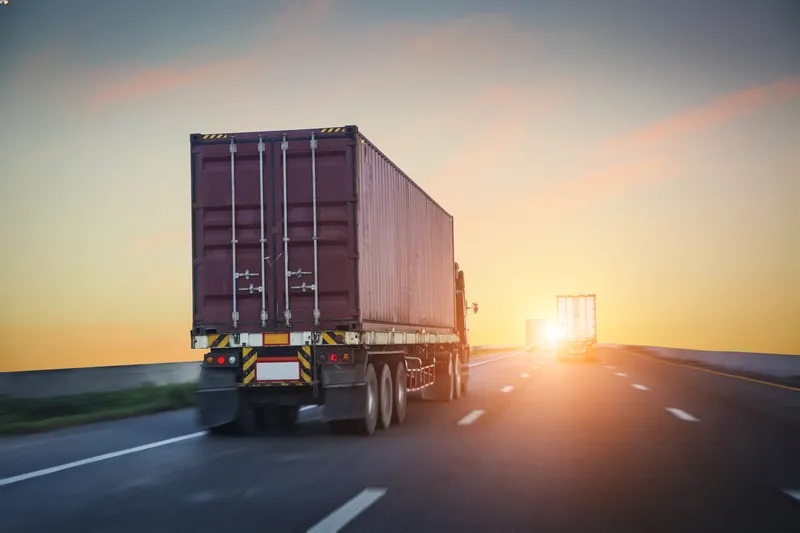Establishing liability and financial responsibility in truck accidents in West Virginia is crucial, especially considering the complexity of multi-party involvement. In West Virginia, where trucking accidents can be particularly challenging, factors such as shared fault, intricate insurance policies, and corporate responsibility contribute to the complexity. The article explores the essential details and legal nuances required to navigate these complexities and successfully prove liability and financial responsibility in truck accidents in West Virginia.
- Shared Fault and Comparative Negligence
Shared fault and comparative negligence are legal concepts that significantly establish liability and financial responsibility in truck accidents. In West Virginia, where comparative negligence laws are in effect, authorities can proportion liability and financial responsibility based on each party involved’s fault. That means that even if the truck driver is partially at fault, they may still seek compensation for their damages.
A skilled Truck Accident Lawyer can help navigate these complexities by gathering evidence, analyzing the circumstances, and advocating for a fair fault distribution. As a precaution, it is crucial for all road users in West Virginia to exercise caution, adhere to traffic laws, and maintain safe driving practices to reduce the risk of accidents and shared fault situations.
- Complex WV Insurance Policies
In West Virginia, truck accidents are subject to the complexities of insurance policies, which can significantly impact liability and financial responsibility. The state’s unique landscape and high volume of commercial trucking increase the likelihood of accidents involving multiple parties. Identifying the appropriate insurance provider responsible for compensation becomes daunting due to the multiple layers of liability coverage trucking companies carry, including primary and excess coverage.
Coordinating insurance coverage among these parties can further complicate the situation. However, a skilled truck accident lawyer familiar with West Virginia’s specific insurance laws can navigate these complexities. They can thoroughly examine the insurance policies, determine potential coverage sources, and negotiate with insurance companies to ensure maximum victim compensation.
Understanding the intricacies of these complex insurance policies is crucial in holding the responsible party accountable and securing the appropriate financial recovery for the damages suffered by individuals involved in truck accidents in West Virginia.
- Corporate Responsibility and Vicarious Liability
Corporate responsibility refers to the legal obligation of trucking companies to ensure the safety and compliance of their operations, including hiring, training, supervision, and maintenance practices. Vicarious liability holds these companies accountable for the actions of their employees, making them responsible for any negligence or misconduct committed while performing job-related duties.
Establishing corporate responsibility and proving vicarious liability in trucking accidents in West Virginia is crucial in determining liability and financial responsibility. Experienced lawyers specializing in trucking accidents can assist by investigating the company’s practices, gathering evidence, and building a solid case to hold the company accountable. They navigate complex legal frameworks, negotiate with insurance companies, and ensure victims receive fair compensation for their damages.
- Expert Accident Reconstruction and Investigation
Expert accident reconstruction and investigation provide a comprehensive and scientific analysis of truck accidents. It helps determine the cause and circumstances of trucking accidents in West Virginia and who may be at fault. Accident reconstruction experts, often engineers or specialized professionals, analyze evidence such as skid marks, vehicle damage, witness testimonies, and data from electronic logging devices (ELDs) and black box recorders to reconstruct the events leading to the accident.
In West Virginia, compliance with the “Black Box Law” requires certain commercial motor vehicles to be equipped with event data recorders (EDRs). These EDRs capture valuable data crucial in accident reconstruction and investigation.
This evidence can strengthen the victim’s case by providing objective and reliable information about the accident’s cause, contributing factors, and the party responsible. While not full-proof, expert analysis significantly enhances the victim’s position in negotiations and legal proceedings by providing compelling evidence to support their claims and compensation.
Conclusion
The intricacies of establishing liability and financial responsibility in truck accidents in West Virginia require a comprehensive approach. With West Virginia’s complex trucking policies, unique landscape, and high volume of commercial trucking, it is essential to navigating these complexities with the guidance of experienced truck accident lawyers who understand the state’s specific laws and regulations. By leveraging their expertise, victims can seek justice, hold responsible parties accountable, and secure the financial recovery they deserve. West Virginia’s roadways demand a diligent pursuit of justice to ensure safer conditions for all and protect the rights of those affected by truck accidents.
